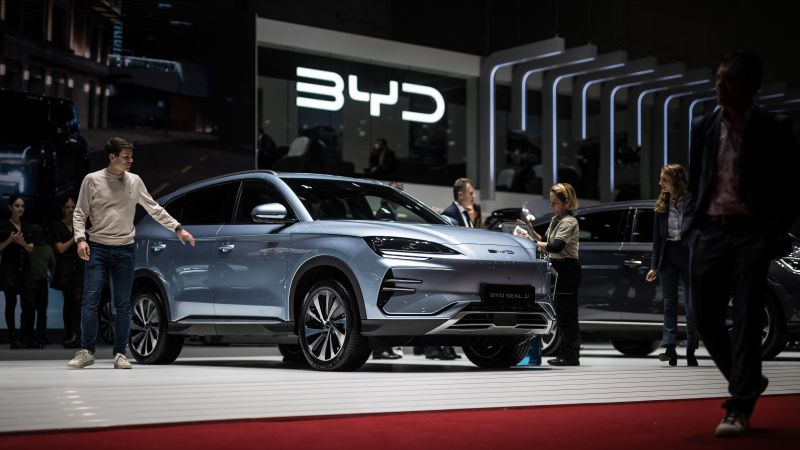Asia China Auto industry Economy See all topics Follow
In the spring of 2024, Li Hongxing, who runs a social media ad agency, took on a client he believed to be a rising star in China’s electric vehicle market.
A marketing veteran in the auto industry, Li went so far as to borrow to cover the cost of ads for Ji Yue, expecting payment later from the EV startup he thought had everything it needed to succeed: efficiency, growing sales, and deep-pocketed backers.
But it didn’t.
Within half a year, the carmaker collapsed, turning Li’s gamble into a nightmare, saddling him with debt of 40 million yuan ($5.6 million).
“It was a feeling of sheer despair,” Li said.
Ji Yue’s downfall is hardly unique in China’s auto industry, where hundreds of brands have gone under in a brutal race to the bottom over the past few years. The country’s EV boom not only gave rise to global leaders like BYD; it has also led to extensive overcapacity in which a crowd of carmakers are scrambling for market share.
The Chinese government has long dealt out subsidies and other support for EV makers – part of a strategy that helped catapult the country to its position as the largest EV market globally and spur growth in the world’s second-largest economy.
Relentless price wars have ensued, depleting profits and straining carmakers and suppliers. Even front-runners are squeezing parts makers to sell below cost, while extending payment terms for months, according to a dozen suppliers, carmakers, and industry experts who spoke to CNN.
It’s an example of what Chinese officials decry as “disorderly” competition – and it extends beyond the EV sector to other Chinese industries like solar panels, e-commerce and food delivery.
This all comes as EV brands including BYD, Chery, Geely and Changan have g
Continue Reading on CNN
This preview shows approximately 15% of the article. Read the full story on the publisher's website to support quality journalism.
